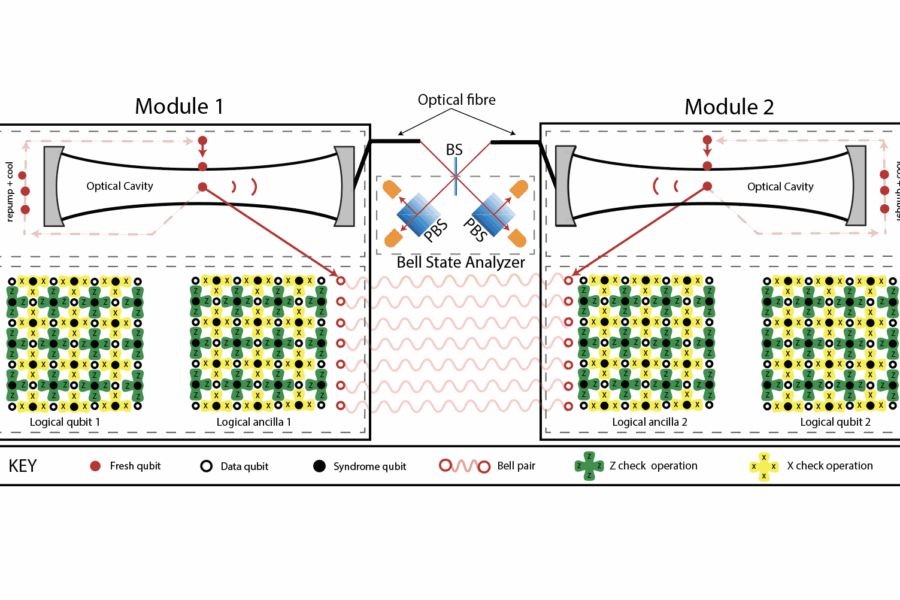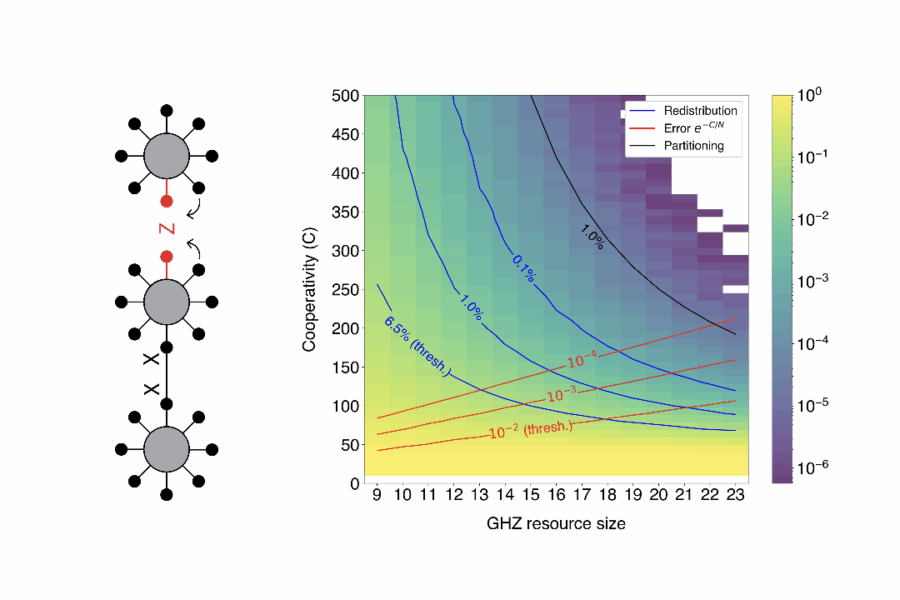Welcome to the Sinclair Lab
The amount of entanglement we can control will ultimately determine the limits of computation and measurement sensitivity. In the Sinclair Quantum Lab, we seek to probe and advance these limits by developing new experimental platforms for distributing remote entanglement on an unprecedented scale and harnessing this entanglement to build modular, fault-tolerant quantum computers and distributed quantum sensors.
- Quantum Computing: The central challenge of practical quantum computing is to scale up devices without compromising the quality of qubits. Quantum error correction offers a promising route to suppressing errors, but because many qubits are required for each error-corrected qubit, the number of physical qubits needed for useful applications is very large. As neutral atom systems approach practical size limits, true scalability will require connecting arrays in a modular architecture. This approach, which has been explored in other platforms [1,2], is appealing because it reduces the challenge of scaling to designing a unit module that can distribute entanglement to other modules.
- Distributed Quantum Sensing: Distributing entanglement over large distances opens new prospects for quantum-enhanced sensors in which distance plays an important role. Proposals for harnessing long-range entanglement for better quantum codes, long-baseline interferometry, or entangled networks of clocks make it clear that we are still only beginning to understand how to harness the power of entanglement. By developing new experimental platforms for creating and distributing entanglement across great distances, we will explore new avenues for quantum metrology and strive to advance the fundamental limits of measurement in a quantum world.
Our approach aims to combine large neutral atom processors, which contain multiple logical qubits, with exceptionally efficient high-speed photonic links, thereby creating a powerful and scalable platform for quantum information science.
Current Projects












